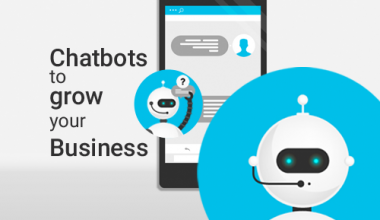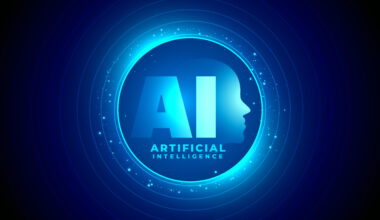
Generative AI, a subset of artificial intelligence, has become a transformative force across various industries. By leveraging advanced machine learning algorithms, generative AI can create new content, designs, and solutions, opening up unprecedented opportunities and driving significant changes in how businesses operate. In this blog, we explore how generative AI is disrupting businesses and shaping the future of multiple sectors.
1. Revolutionizing Content Creation
Automated Content Generation: Generative AI can produce high-quality text, images, and videos, significantly reducing the time and cost associated with content creation. Businesses can use AI to generate blog posts, marketing materials, product descriptions, and more, allowing human creators to focus on strategic tasks.
Personalized Marketing: With the ability to analyze customer data and preferences, generative AI can create personalized marketing content tailored to individual users. This level of customization enhances customer engagement and drives conversion rates, leading to more effective marketing campaigns.
2. Enhancing Product Design and Development
Innovative Design Solutions: Can assist in the design process by creating numerous design iterations based on specified parameters. This capability is particularly valuable in industries like fashion, architecture, and automotive, where innovative and efficient designs are crucial.
Rapid Prototyping: By simulating different design scenarios and predicting potential outcomes, generative AI accelerates the prototyping phase. This speed enables businesses to bring products to market faster, maintaining a competitive edge.
3. Optimizing Supply Chain and Logistics
Predictive Analytics: Can analyze vast amounts of data to predict demand patterns, optimize inventory levels, and streamline supply chain operations. By anticipating disruptions and adjusting logistics in real-time, businesses can minimize downtime and reduce costs.
Route Optimization: In logistics, generative AI algorithms can design optimal delivery routes, considering factors like traffic, weather, and delivery time windows. This optimization leads to faster deliveries, reduced fuel consumption, and improved customer satisfaction.
4. Transforming Customer Service
AI-Powered Chatbots: Enhances customer service by powering chatbots capable of understanding and responding to complex queries. These chatbots provide instant support, resolve issues efficiently, and offer personalized recommendations, improving the overall customer experience.
Sentiment Analysis: By analyzing customer feedback and sentiment, it helps businesses understand customer emotions and preferences. This insight allows for more responsive and empathetic customer service strategies.
5. Advancing Healthcare Solutions
Medical Research and Diagnostics: In healthcare, it contributes to medical research by generating hypotheses, analyzing clinical data, and identifying potential treatments. Additionally, AI-driven diagnostic tools can analyze medical images and patient data to detect diseases early and accurately.
Personalized Medicine: Enables the creation of personalized treatment plans based on individual patient data. This approach increases the effectiveness of treatments and improves patient outcomes, revolutionizing the field of medicine.
6. Improving Financial Services
Fraud Detection: Generative AI enhances fraud detection by identifying unusual patterns and anomalies in transaction data. This capability helps financial institutions detect and prevent fraudulent activities in real time, protecting both the business and its customers.
Automated Financial Advice: AI-driven advisory services provide personalized financial recommendations based on user data and market trends. This automation allows financial advisors to offer more precise and timely advice, improving customer satisfaction.
7. Challenges and Considerations
While generative AI offers numerous benefits, businesses must address several challenges to fully leverage its potential:
Ethical and Bias Concerns: Generative AI models can inadvertently perpetuate biases present in training data. Businesses must ensure ethical AI practices by using diverse datasets and implementing bias mitigation strategies.
Data Privacy: The use of generative AI involves processing vast amounts of data, raising concerns about data privacy and security. Businesses must comply with data protection regulations and implement robust security measures.
Integration with Existing Systems: Integrating generative AI with existing business systems can be complex and require significant investment. Businesses should plan for a phased implementation to minimize disruptions and ensure a smooth transition.
Conclusion
Generative AI is a powerful tool that is transforming businesses across various industries. From automating content creation to optimizing supply chains and enhancing customer service, the disruptive potential of generative AI is vast. By addressing ethical concerns, ensuring data privacy, and carefully integrating AI technologies, businesses can harness the power of generative AI to drive innovation, efficiency, and growth in the digital age.
At Fusion Informatics, we specialize in helping businesses leverage AI to achieve their strategic goals. Contact us today to learn how we can support your AI journey and unlock new opportunities for your business.














